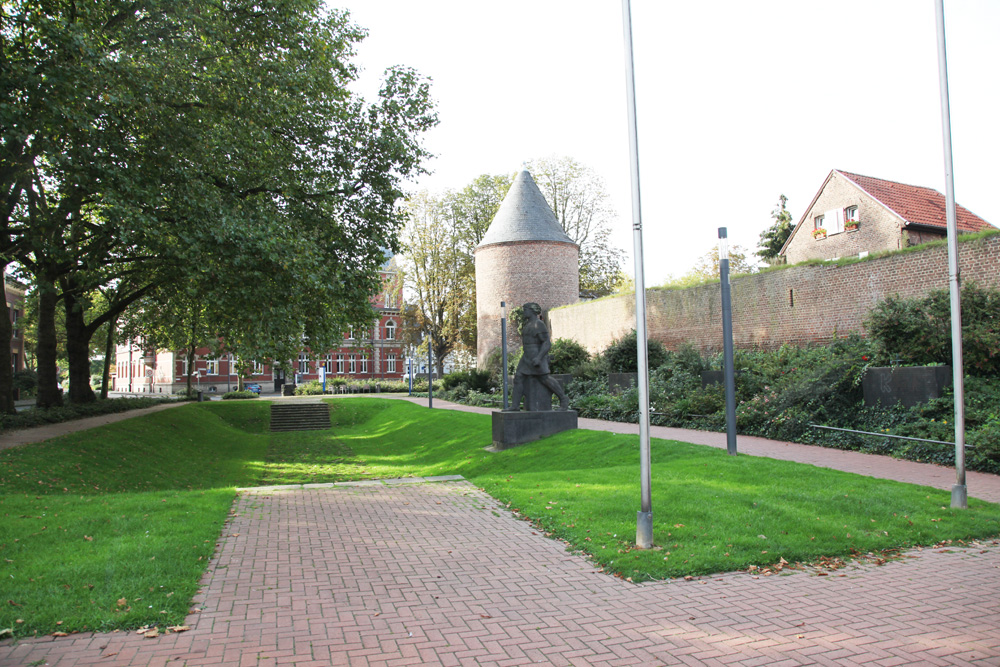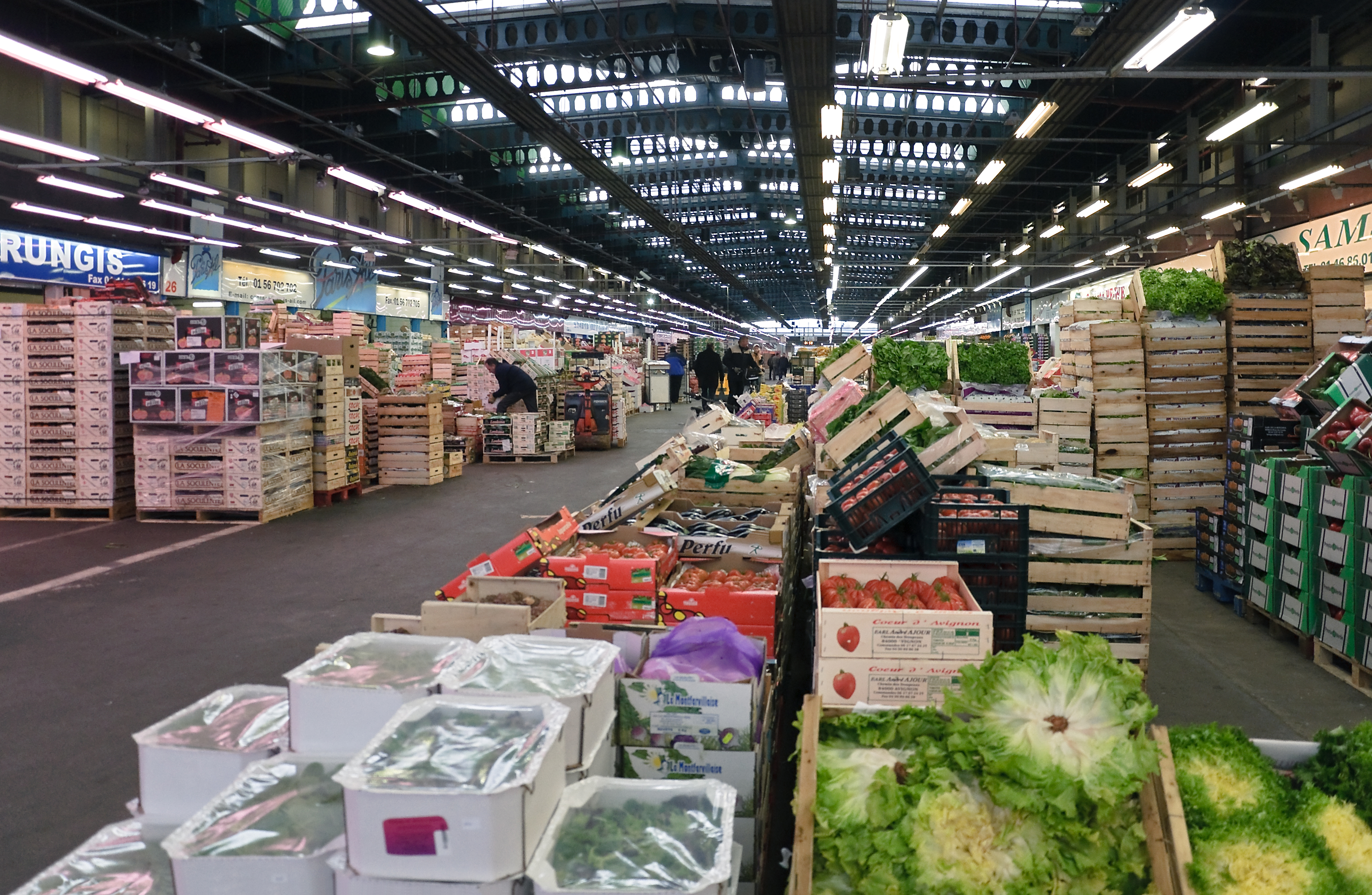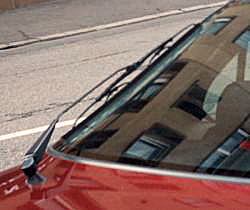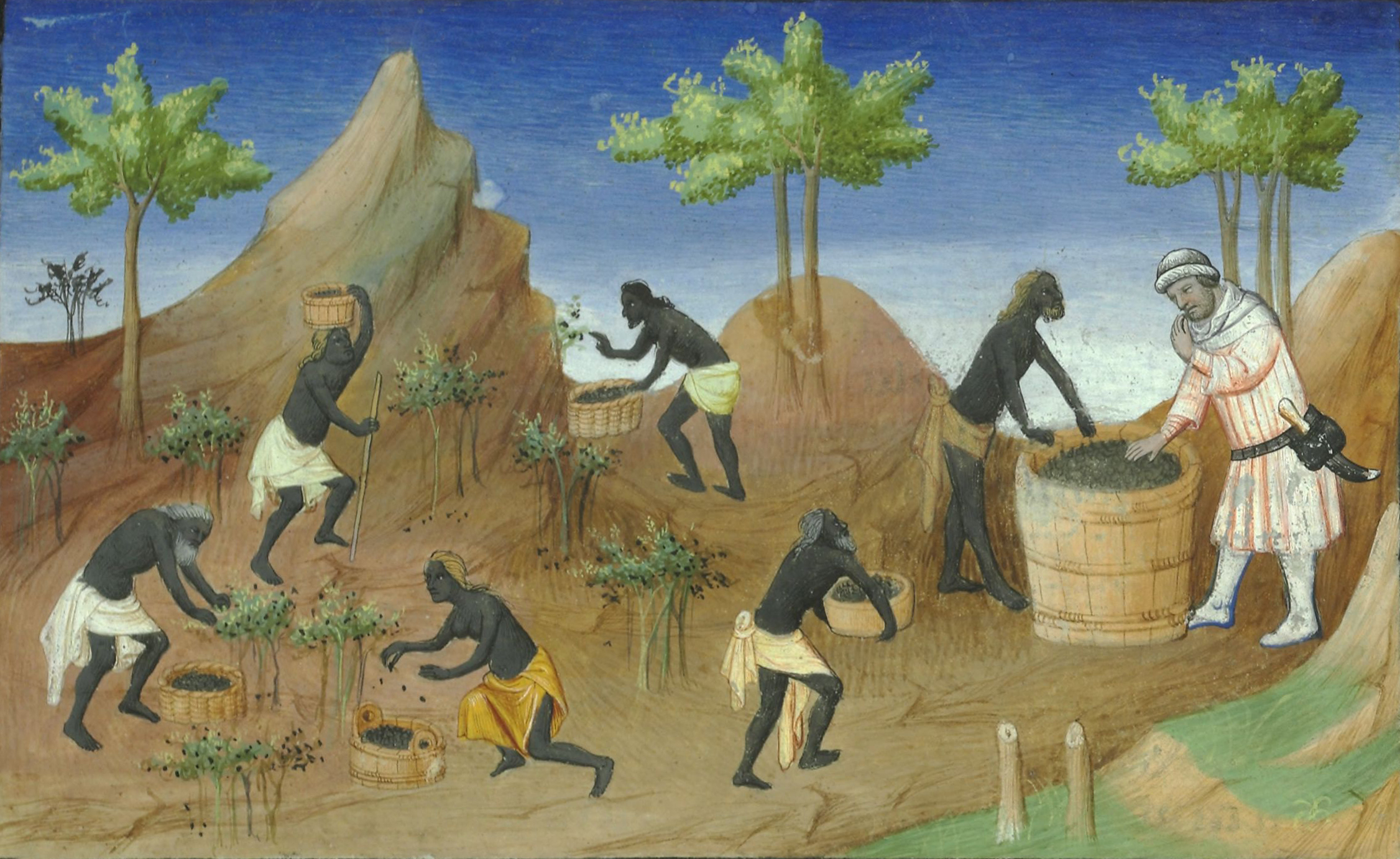|
Dülkener Schöppenmarkt
The Dülkener Schöppenmarkt (i. e. „Shovel Fair“) in Dülken is one of the largest and oldest country-fairs or Krammärkte in Western Germany. Date, Place, numbers of visitors The ''Schöppenmarkt'' takes place on Ash Wednesday following carnival from 8.00 in the morning until 8.00 in the evening in the center of the once independent City of Dülken – today forming part of the city of Viersen. Depending on the weather conditions it was visited during the last years by an estimated 100.000 to 120.000 visitors from the surrounding Lower Rhine region, the Ruhr district and the neighbouring provinces of the Netherlands. History, size and present product range This all-day fair, has been a meeting place for travelling retailers, since Ash Wednesday in 1847. It bears the name “Schöppenmarkt” i.e. Shovel Fair, because in olden times the farmers, workmen and housewives from the surrounding area came into town to the market to buy new tools and equipment normally not available in ... [...More Info...] [...Related Items...] OR: [Wikipedia] [Google] [Baidu] |
Dülken
Dülken is a town located in the North Rhine-Westphalia state of Germany. It has a population of about 20,000. It is a borough of the municipality of Viersen. It received its town charter in 1364 thus being the oldest part of the municipality of Viersen. It lies in the administrative region of Düsseldorf. The river Nette having its source underground in the middle of the town rises near the town. The town motto is, "Gloria tibi Duelken", or "Glory to you, Duelken". History Mackenstein, a part of Dülken, is first mentioned 1135. Dülken itself appears in historic records 1210. The town was officially chartered as a city between 1352 and 1364. First settlements are dated to the time before the Roman Empire by tribes of Menapii and Eburones. Romans occupied the lower Rhineland and dislodged tribes that were not willing to cooperate until they finally withdrew in the second half of the 5th century. The Franks incurred the area as a County and ruled until about the 10th century. Due ... [...More Info...] [...Related Items...] OR: [Wikipedia] [Google] [Baidu] |
Garden Gnomes
Garden gnomes (german: links=no, Gartenzwerge, lit=garden dwarfs) are lawn ornament figurines of small humanoid creatures based on the mythological creature and diminutive spirit which occur in Renaissance magic and alchemy, known as gnomes. They also draw on the German folklore of the dwarf. Traditionally, the garden figurines depict male dwarfs wearing red pointy hats. Typically, gnomes stand between . Originating as a decoration for the wealthy in Europe, garden gnomes are now prevalent in gardens and lawns throughout the Western world, among all social classes. They are regarded by some as kitsch. History Ancient predecessors In ancient Rome, small stone statues depicting the Greco-Roman fertility god Priapus, also a protector of beehives, flocks, and vineyards, were frequently placed in Roman gardens. Gnomes as magical creatures were first described during the Renaissance period by Swiss alchemist Paracelsus as "diminutive figures two spans in height who did not like to ... [...More Info...] [...Related Items...] OR: [Wikipedia] [Google] [Baidu] |
Fairs In Germany
A fair (archaic: faire or fayre) is a gathering of people for a variety of entertainment or commercial activities. Fairs are typically temporary with scheduled times lasting from an afternoon to several weeks. Types Variations of fairs include: * Art fairs, including art exhibitions and arts festivals * County fair (USA) or county show (UK), a public agricultural show exhibiting the equipment, animals, sports and recreation associated with agriculture and animal husbandry. * Festival, an event ordinarily coordinated with a theme e.g. music, art, season, tradition, history, ethnicity, religion, or a national holiday. * Health fair, an event designed for outreach to provide basic preventive medicine and medical screening * Historical reenactments, including Renaissance fairs and Dickens fairs * Horse fair, an event where people buy and sell horses. * Job fair, event in which employers, recruiters, and schools give information to potential employees. * Regional or state fair, an ... [...More Info...] [...Related Items...] OR: [Wikipedia] [Google] [Baidu] |
Wholesale Markets
The consumption and production of marketed food are spatially separated. Production is primarily in rural areas while consumption is mainly in urban areas. Agricultural marketing is the process that overcomes this separation, allowing produce to be moved from an area of surplus to one of need. Food reaches the consumer by a complex network, involving production, assembly, sorting, packing, reassembly, distribution and retail stages. In developing countries the linkage between the producer and the retailer is still usually provided by assembly and wholesale markets, where wholesale marketing takes place using a variety of transaction methods. Recent years have seen an expansion of wholesale marketing in European and former CIS countries. On the other hand, the growth of supermarkets in many regions has seen the development of direct marketing and a reduced role for wholesale systems. Types of wholesale market Wholesale markets can either be primary, or terminal, markets, situated ... [...More Info...] [...Related Items...] OR: [Wikipedia] [Google] [Baidu] |
Westdeutsche Zeitung
The ''Westdeutsche Zeitung'' (''WZ'') ( en, West German Newspaper) is one of the largest regional newspaper in North Rhine-Westphalia, Germany. Its headquarters is in Wuppertal with additional offices in Düsseldorf and Krefeld Krefeld ( , ; li, Krieëvel ), also spelled Crefeld until 1925 (though the spelling was still being used in British papers throughout the Second World War), is a city in North Rhine-Westphalia, Germany. It is located northwest of Düsseldorf, i .... In 2001 the circulation of the ''WZ'' was 214,000 copies. References External links * * 1887 establishments in Germany German-language newspapers Mass media in Wuppertal Publications established in 1887 Daily newspapers published in Germany German news websites {{Germany-newspaper-stub ... [...More Info...] [...Related Items...] OR: [Wikipedia] [Google] [Baidu] |
Rheinische Post
''Rheinische Post'' is a major German regional daily newspaper published since 1946 by the ''Rheinische Post Verlagsgesellschaft GmbH'' company, and headquartered in Düsseldorf. The Post is especially dominant in the western part of North Rhine-Westphalia. The Post's online platforms are called RP ONLINE and Tonight.de. History and profile ''Rheinische Post'' is one of the allied new foundations in the post-World War II era. NSDAP-opponents Karl Arnold, Anton Betz, Erich Wenderoth and (soon resigned) Friedrich Vogel received a British newspaper license. The newspaper was established in 1946 and belongs to the Arnold, Betz, Droste, Alt and Ebel families. It is part of the ''Rheinische Post Mediengruppe'' which also owns newspapers like the ''Saarbrücker Zeitung'', the ''Lausitzer Rundschau'' or the ''Trierischer Volksfreund''. The core distribution area stretches from the Bergischen Land to the Dutch border. There are 31 local editions, among them other regional newspapers, li ... [...More Info...] [...Related Items...] OR: [Wikipedia] [Google] [Baidu] |
Westdeutscher Rundfunk
Westdeutscher Rundfunk Köln (''West German Broadcasting Cologne''; WDR, ) is a German public-broadcasting institution based in the Federal State of North Rhine-Westphalia with its main office in Cologne. WDR is a constituent member of the consortium of German public-broadcasting institutions, ARD. As well as contributing to the output of the national television channel '' Das Erste'', WDR produces the regional television service WDR Fernsehen (formerly known as WDF and West3) and six regional radio networks. History Origins The Westdeutsche Funkstunde AG (WEFAG) was established on 15 September 1924. There was a substantial purge of left wing staff following the Nazi seizure of power in 1933. This included Ernst Hardt, Hans Stein and Walter Stern. WDR was created in 1955, when Nordwestdeutscher Rundfunk (NWDR) was split into Norddeutscher Rundfunk (NDR) – covering Lower Saxony, Schleswig-Holstein, and Hamburg – and Westdeutscher Rundfunk, responsible for Nort ... [...More Info...] [...Related Items...] OR: [Wikipedia] [Google] [Baidu] |
Lent
Lent ( la, Quadragesima, 'Fortieth') is a solemn religious observance in the liturgical calendar commemorating the 40 days Jesus spent fasting in the desert and enduring temptation by Satan, according to the Gospels of Matthew, Mark and Luke, before beginning his public ministry. Lent is observed in the Anglican, Eastern Orthodox, Lutheran, Methodist, Moravian, Oriental Orthodox, Persian, United Protestant and Roman Catholic traditions. Some Anabaptist, Baptist, Reformed (including certain Continental Reformed, Presbyterian and Congregationalist churches), and nondenominational Christian churches also observe Lent, although many churches in these traditions do not. Which days are enumerated as being part of Lent differs between denominations (see below), although in all of them Lent is described as lasting for a total duration of 40 days. In Lent-observing Western Churches, Lent begins on Ash Wednesday and ends approximately six weeks later; depending on the Christian ... [...More Info...] [...Related Items...] OR: [Wikipedia] [Google] [Baidu] |
Windscreen Wipers
A windscreen wiper, windshield wiper, wiper blade (American English), or simply wiper, is a device used to remove rain, snow, ice, washer fluid, water, or debris from a vehicle's front window. Almost all motor vehicles, including cars, trucks, buses, train locomotives, and watercraft with a cabin—and some aircraft—are equipped with one or more such wipers, which are usually a legal requirement. A wiper generally consists of a metal arm; one end pivots, and the other end has a long rubber blade attached to it. The arm is powered by a motor, often an electric motor, although pneumatic power is also used for some vehicles. The blade is swung back and forth over the glass, pushing water, other precipitation, or any other impediments to visibility from its surface. The speed is usually adjustable on vehicles made after 1969, with several continuous rates and often one or more ''intermittent'' settings. Most personal automobiles use two synchronized ''radial''-type arms, wh ... [...More Info...] [...Related Items...] OR: [Wikipedia] [Google] [Baidu] |
Horse Meat
Horse meat forms a significant part of the culinary traditions of many countries, particularly in Eurasia. The eight countries that consume the most horse meat consume about 4.3 million horses a year. For the majority of humanity's early existence, wild horses were hunted as a source of protein. History During the Paleolithic, wild horses formed an important source of food for humans. In many parts of Europe, the consumption of horse meat continued throughout the Middle Ages until modern times, despite a papal ban on horse meat in 732. Horse meat was also eaten as part of Germanic pagan religious ceremonies in Northern Europe, particularly ceremonies associated with the worship of Odin.Calvin W. Schwabe, ''Unmentionable Cuisine'', University Press of Virginia, The earliest horses evolved on the North American continent, and by about 12,000 BC, they had migrated to other parts of the world, becoming extinct in the Americas. The now-extinct Hagerman horse of Idaho, about the ... [...More Info...] [...Related Items...] OR: [Wikipedia] [Google] [Baidu] |
Spices
A spice is a seed, fruit, root, Bark (botany), bark, or other plant substance primarily used for flavoring or coloring food. Spices are distinguished from herbs, which are the leaves, flowers, or stems of plants used for flavoring or as a garnish (food), garnish. Spices are sometimes used in medicine, Sacred rite, religious rituals, cosmetics or perfume production. For example, vanilla is commonly used as an ingredient in Aroma compound, fragrance manufacturing. A spice may be available in several forms: fresh, whole dried, or pre-ground dried. Generally, spices are dried. Spices may be ground into a powder for convenience. A whole dried spice has the longest shelf life, so it can be purchased and stored in larger amounts, making it cheaper on a per-serving basis. A fresh spice, such as ginger, is usually more flavorful than its dried form, but fresh spices are more expensive and have a much shorter shelf life. Some spices are not always available either fresh or whole, for exam ... [...More Info...] [...Related Items...] OR: [Wikipedia] [Google] [Baidu] |
Germany
Germany,, officially the Federal Republic of Germany, is a country in Central Europe. It is the second most populous country in Europe after Russia, and the most populous member state of the European Union. Germany is situated between the Baltic and North seas to the north, and the Alps to the south; it covers an area of , with a population of almost 84 million within its 16 constituent states. Germany borders Denmark to the north, Poland and the Czech Republic to the east, Austria and Switzerland to the south, and France, Luxembourg, Belgium, and the Netherlands to the west. The nation's capital and most populous city is Berlin and its financial centre is Frankfurt; the largest urban area is the Ruhr. Various Germanic tribes have inhabited the northern parts of modern Germany since classical antiquity. A region named Germania was documented before AD 100. In 962, the Kingdom of Germany formed the bulk of the Holy Roman Empire. During the 16th ce ... [...More Info...] [...Related Items...] OR: [Wikipedia] [Google] [Baidu] |





